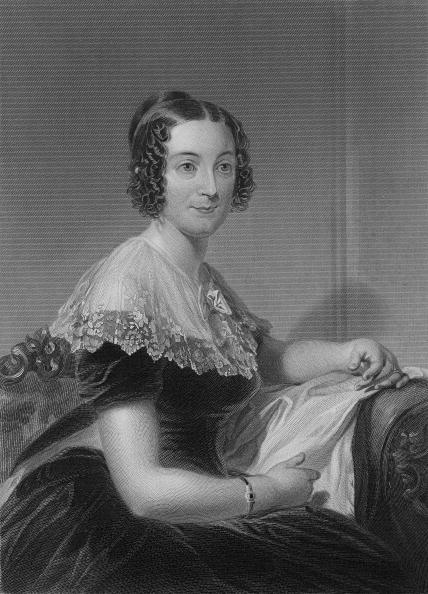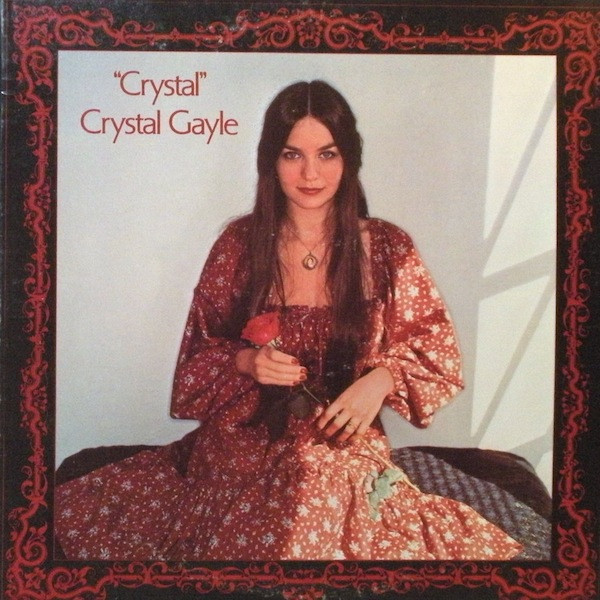There are names that used to be given to boys but have since become almost entirely given to girls. Evelyn is an example of one of these names that has swapped genders. Author Evelyn Waugh (1903-1966) is cited as the most famous male Evelyn, proof that Evelyn was at one time considered masculine. Is that what actually happened though? In the rush to categorize names as either male of female we may have skipped over another option: unisex.
Evelyn was the surname of an aristocratic English family in the 1600s. The origin of the surname is usually given as a form of the feminine medieval name Aveline, which had mostly gone out of use as a first name by the 1500s. The English peerage started using surnames as first names at this time and in 1665 Elizabeth Pierrepoint, daughter of Sir John Evelyn, named her 3rd son after her prestigious maiden name, calling him Evelyn Pierrepont. He was Chief Advisor to Queen Anne and was elevated from Earl to Duke of Kingston-upon-Hull by King George I. His position and importance may have inspired other unrelated noble families to name their children Evelyn. The Duke himself named his 3rd daughter Evelyn in 1691. This daughter Evelyn then named her daughter after herself in 1725. That's a very quick turn around for a name going from masculine to feminine. Is there more to this story?
Remember how I said Evelyn had mostly gone out of use by the 1500s? Mostly does not mean completely. There were still women named Evelyn alive when Pierrepont was named. The licence for Evelyn Pierrepont's marriage to Dame Mary Feilding was issued by the Archbishop of Canterbury in June of 1687. That same faculty office issued a marriage licence to Stephen Humphrey and Evelyn Heape almost 5 years earlier in February of 1682. Even earlier in 1680 Samuel Heape married an Eveling Packe. In his own time, Evelyn Pierrepont was not the only Evelyn, but he might have been the only man.
It should not be surprising then to find the same amount of women as men named Evelyn in England's first census of 1841: 42 females and 42 males. This would have still been a very rare name and easily could have remained unisex. Ten years later in 1851 there were 196 females and 88 males. By the time Evelyn Waugh was named in 1903, the 1901 census had recorded over 36,000 people named Evelyn, 95% of them female.
Was Evelyn Pierrepont given a woman's name? Probably not. The prestige of the Evelyn family likely made the surname association the main association, not the enduring rare use as a woman's first name. Using it after a surname for a son made it unisex.
There was a similar story over in the United States. In 1850 census there were over 5 times as many women than men, 310 female to 53 male Evelyns. But still, it wasn't common enough to be considered gendered, it was unisex there too. The bigger popularity for girls in the US might be explained by the actions of William Evelyn Byrd Jr. (1674-1744), founder of Richmond Virginia. He named his daughter Evelyn Byrd in 1707, nicknamed Evie. Although born in Virginia, William Byrd spent most of his early life in England, as did his daughter. She was forbidden from marrying her love when she was 20, moved back to Virginia and died unmarried at 29. The story goes "the tap, tap of Evelyn's high-heeled slippers continues to be heard in the corridors of the home from which, long ago, she faded broken-hearted to the grave". Her legacy was also in the names of her later family as there are many descendants named Evelyn Byrd, first and middle or last. Of the 13 descendants named Evelyn (to third great grandchildren), eight are named Evelyn Byrd in some form, and one is an Eva Bird. Only two of the 13 were boys and only a middle name in their case. The Duke Evelyn Pierrepont's descendants in England were a bit more balanced with 5 women and 5 men named Evelyn.
There were other notable influences on the name Evelyn. In 1788 Fanny Burney wrote her famous novel Evelina which would later be linked to the popularity of the names Evelina, Eveline and also Evelyn. In 1855 English poet Robert Browning wrote a romantic poem about a woman named Evelyn Hope. The British Army officer Sir Evelyn Wood was in active service from 1854 until 1905 reaching the rank of Field Marshal and was part of newsworthy events.
Contemporary writers mentioned the name Evelyn, some calling it one of those romantic names the lower classes found in cheap novels. Charlotte M. Yonge in her 1863 "History of Christian Names" warns that parents should choose the feminine Eveline spelling over the masculine surname spelling so that they may "follow the old Eveline of song and romance." Later William Sawyer would write in 1869 for Belgravia (a fashionable London neighbourhood periodical) that "Evelyn is one of the bewildering names without sex." The Evelyn spelling would overtake Eveline in popularity for girls some time in the 1890s (they were pronounced the same, either EVE-lin or EV-eh-lin).
Which brings us back to Evelyn Waugh. His full name was Arthur Evelyn St. John Waugh after his father Arthur Waugh. He went by Evelyn his whole life, even marrying (and divorcing) a woman named Evelyn. They quickly became known as "He-Evelyn" and "She-Evelyn" to their friends. He seemed perfectly happy with a unisex name, although even from the beginning of his career there was confusion. He was called "Miss Waugh" by a literary review which angered him, but no one likes being misgendered.
The popularity of Evelyn continued to grow. In 1906 American model Evelyn Nesbit was the subject of the "Trial of the Century" when her wealthy husband Harry Kendall Shaw shot and killed an ex-boyfriend of hers. Although already trending, the name Evelyn reached its most popular in 1915 ranking 10th in the US, and in England peaked around 1908 somewhere in the top 20.
It then went slowly out of fashion but never disappeared. There was a slight uptick in 1982 when the movie Ragtime earned Elizabeth McGovern an Oscar nomination for playing the same Evelyn Nesbit that influenced it the first time. It slowly became more popular and may have been influenced by Rachel Weisz's The Mummy (1999) character, Evelyn Carnahan. The character was based on early 1900s archeologist Lady Evelyn Herbert. Kate Beckinsale also played an Evelyn in the 2001 movie Pearl Harbor. Evelyn's popularity in the US peaked in 2017, and in England and Wales in 2018 in the top 20.
To the question at hand. Was Evelyn ever more common for men? Behindthename.com writes that "in the 17th century when it was first used as a given name it was more common for boys". In truth it was still being used by women when Pierrepont was named. There are women named Evelyn born in the 1600s, the Irish Annals record a few. The mother of Robert Molyns, a Bridgewater MP in the 1550s, was named Evelyn. C.M. Yonge mentions an Eveleen baptized in 1538. I actually can't point to a single point in time when Evelyn was verifiably more common for men after Pierrepont. Looking at all the notable men named Evelyn from the 18th and 19th century it might appear to have been more common for men, until you remember that the historical record does not represent men and women equally. Finding as many women named Evelyn as I did attached to historical men indicates a high probability of a few more unrecorded female Evelyns. Thanks to historical bias, masculine will be the default for any rare unisex name, unless you are willing to dig a bit deeper.
To set the record straight, Evelyn Waugh was given a historically feminine name that had become unisex, although it likely wasn't intentional by his parents.
There are more names that should probably be reclassified as unisex, including Vivian and Sidney. Like Evelyn, they had mixed gender usage before they become common for only one gender.
Sources:
American Name Society article on Evelyn by Dr. Cleveland Evans
https://www.americannamesociety.org/evelyn-historically-popular-for-both-men-and-women/
Feminine names from the Irish Annals
https://medievalscotland.org/kmo/AnnalsIndex/Feminine/Aibhilin.shtml
Robert Molyns, MP at History of Parliament
http://historyofparliamentonline.org/volume/1558-1603/member/molyns-robert-1516-74
British Army Officer Evelyn Wood, Wikipedia
https://en.wikipedia.org/wiki/Evelyn_Wood_(British_Army_officer)
Name of the day: Evelyn, Appellationmountain by Abby Sandel
https://appellationmountain.net/baby-name-of-the-day-evelyn/
Entry for Evelyn, BehindtheName by Mike Campbell
https://www.behindthename.com/name/evelyn
Decendents of Evelyn Pierrepont, wikitree
https://www.wikitree.com/wiki/Pierrepont-69
Decendents of William Byrd, wikitree
https://www.wikitree.com/wiki/Byrd-25
Index Library of Archbishop of Cantebury Marriage Licences
https://archive.org/embed/indexlibrary3316brit
Belgravia: A London Magazine, Volume 8, page 391, Google Books
https://books.google.com/books?id=WIU3AAAAMAAJ&pg=PA391
The History of Christian Names by Charlotte M. Yonge, Project Gutenburg
https://www.gutenberg.org/files/70419/70419-h/70419-h.htm
Explore name popularity back to 1838! Here's Evelyn & Eveline, flourish by Anna Powell-Smith
https://demos.flourish.studio/namehistory/?names=Evelyn,Eveline
The House that Byrd Built, British Empire
https://www.britishempire.co.uk/biography/byrdwilliam.htm












.jpg)

















